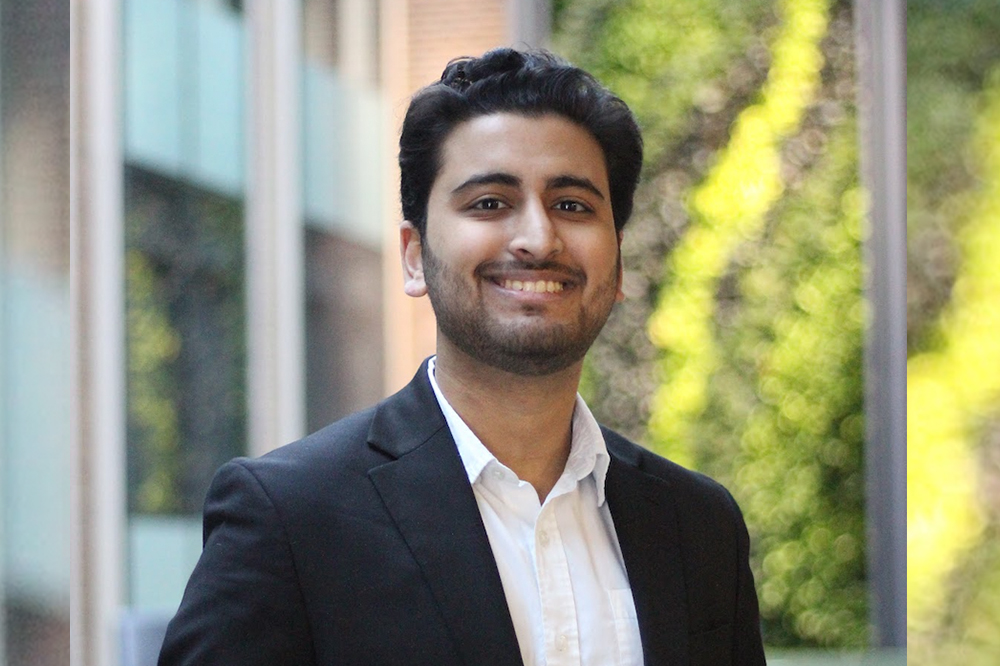
University of Pennsylvania fourth-year Om Gandhi, from Barrington, Illinois, has been awarded a Rhodes Scholarship for graduate study at the University of Oxford in England.
The Rhodes, established in 1902, is highly competitive and one of the most prestigious scholarships in the world. The scholarship funds tuition and a living stipend for two or three years of graduate study at Oxford, and may allow funding in some instances for four years.
According to the Rhodes Trust, about 100 Rhodes Scholars will be selected worldwide this year, chosen from more than 70 countries around the world. Gandhi is among the 32 American Rhodes Scholars chosen to represent the United States. According to the Rhodes Trust, this year nearly 3,000 American students began the application process; 865 were endorsed by 243 different colleges and universities; and 238 applicants reached the final stage of the competition.
Gandhi is pursuing a master’s degree in bioengineering in the School of Engineering and Applied Science, and concurrently majoring in neuroscience and health and societies with a public health concentration in the College of Arts and Sciences. He also is pursing minors in chemistry and health care management. Gandhi conducts research on developing new cancer therapies and diagnostic approaches at Penn’s Center for Cellular Immunotherapies, Penn Medicine’s Neurosurgery/Radiology departments, and the Children’s Hospital of Philadelphia Center for Childhood Cancer Research. He has co-authored more than 10 peer-reviewed manuscripts, presented at multiple national conferences, and received several research grants and awards. Interested in improving cancer care delivery, he spearheaded a national non-profit and volunteers with local clinics to provide health care services to uninsured patients with chronic diseases.
This story was written by Louisa Shepard. To read the full article, please visit Penn Today.
